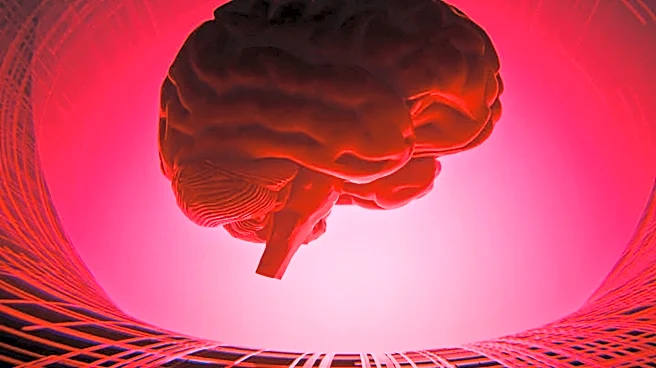What's Happening?
Recent studies in cancer neuroscience have revealed significant insights into the role of the nervous system in cancer progression. Research indicates that neural systems not only participate in physiological
processes but also in pathological ones, including cancer development. The prostate, a nerve-rich organ, is particularly influenced by sympathetic, parasympathetic, and somatic nerves, which play a crucial role in the initiation and progression of prostate cancer. Emerging evidence suggests that neurons can modulate cancer cell activity through paracrine signaling or electrochemical interactions. Additionally, the nervous system's influence extends to reshaping the immune microenvironment in cancer, affecting the tumor-killing activity of CD8+ T cells. The research also highlights the potential of repurposing neuroactive drugs as anti-cancer agents, offering promising avenues for clinical applications.
Why It's Important?
The findings from cancer neuroscience research have significant implications for the development of new cancer therapies. Understanding the interaction between neural systems and cancer cells opens up possibilities for innovative treatment strategies, particularly in prostate cancer. The potential to repurpose existing neuroactive drugs for cancer treatment could lead to more effective and targeted therapies, reducing the reliance on traditional chemotherapy and its associated side effects. Moreover, the research underscores the importance of the nervous system in cancer progression, suggesting that targeting neural pathways could enhance the efficacy of cancer treatments and improve patient outcomes. This could benefit a wide range of stakeholders, including healthcare providers, pharmaceutical companies, and patients seeking more effective cancer treatments.
What's Next?
Future research is likely to focus on further elucidating the mechanisms by which the nervous system influences cancer progression. This includes exploring the potential for targeted neuromodulation and the development of therapies that specifically disrupt the interaction between nerves and cancer cells. Clinical trials may be conducted to test the efficacy of neuroactive drugs in cancer treatment, potentially leading to new therapeutic options for patients. Additionally, large-scale studies could provide more consistent data on the role of neural innervation in cancer, guiding the development of targeted and impactful treatments. The continued exploration of cancer neuroscience could lead to significant advancements in the understanding and treatment of cancer.
Beyond the Headlines
The research into cancer neuroscience also raises ethical and cultural considerations, particularly regarding the use of neuroactive drugs in cancer treatment. The potential repurposing of these drugs for cancer therapy may require careful consideration of their side effects and long-term impacts on patients. Additionally, the findings highlight the complex interplay between the nervous system and cancer, suggesting that a multidisciplinary approach involving neuroscience, oncology, and pharmacology could be essential in developing effective treatments. This research could also lead to a shift in how cancer is perceived and treated, emphasizing the importance of understanding the biological systems that contribute to cancer progression.









